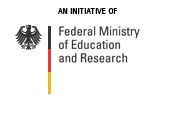Holger Eickhoff: the biochip man
-
 <ic:message key='Bild vergrößern' />
<ic:message key='Bild vergrößern' />
- Holger Eickhoff heads Scienion AG. A competitive swimmer in his early days, his speciality today is somewhat smaller quantities of liquid. Source: Scienion AG
15.06.2013 -
The first German ‘Business Plan Competition’ was a terrific failure, at least from the perspective of Holger Eickhoff. “We didn’t even get to the finals,” he says – truthfully but modestly. While he and his company may not have made it to the last stages, the ambition of the chemist and former performance swimmer was by this time well and truly piqued. The concept was rewritten, the company name changed: Scienion was born. The name is a mixture of science and vision, explains the 47-year-old scientist. Whether it was a result of the new business model or perhaps the name, things certainly turned out more successfully the next time round at the Innovation Award Berlin-Brandenburg. The company was founded in the first year of the millennium as a spin-off of the Max Planck Institute. In Berlin-Adlershof, the 30 employees make devices that can apply the smallest possible droplets of liquid onto chips.
Eickhoff was born in Lower Saxony and studied chemistry in Heidelberg. In 1996 he received his doctorate at the University of Jena in a subject related to molecular biology: ‘The hybridisation of fluorescently marked octanucleotides for DNA sequence analysis.’ He remained true to his subject during postdoctoral studies at the Max Planck Institute for Molecular Genetics in Berlin, where the Scienion founding was to later take place.
More on this subject on biotechnologie.de |
News: BMBF to submit action plan for individualised medicine People: Martin Seifert: Looking over the sea of genomic data |
MPI spin-off
Alongside Eickhoff, a driving force behind the development of the company was his colleague Martin Horn, who is likewise still at Scienion. The six-member team consisted of scientists, engineers and business economists, the majority with a background at the Max Planck Institute for Molecular Genetics. At the time, the institute was an important centre for genome research, and the prevailing mood of confidence was reflected in the high number of local start-ups. “In the summer we would play football against other biotech companies. Most of these have failed to stay afloat, however.”
Clients interested in printing technology
The Scienion business concept is above all focused on biochips. “In contrast to the start-ups in the pharmaceutical world, we could never serve up a great for vision potential financiers. If I had painted a rosy picture, it would have been a pack of lies.”Even after the bursting of the New Economy bubble, the young entrepreneur still managed to cobble together €6 million on the back of his business concept. These millions did not last long. “We went head to head with companies such as Agilent and Affymetrix – and earned ourselves a bloody nose in the process. We didn’t get our finished products onto the market,” admits the biologist. Redundancies could not be avoided in a 2003 reorganisation. But the solution was already at hand: “Instead of talking about the chips, people were focusing on the production technology behind it – with a mind to purchasing.” And so Scienion developed into a specialist in precision dispensing systems for the processing of the smallest possible quantities of liquid. These instruments are for general sale, while other clients have their biochips manufactured for them by Scienion, either on the basis of proteins or of nucleotides.
Zen and the Art of Swimming
Eickhoff comes from near Bremen, where he still has roots. The father of two knows Berlin only as a company head: “On Monday morning I arrive in Berlin, and I’m gone on Friday evening. During this time I am dedicated to the company,” he says. There’s little time remaining for his former pursuits. Until 1990, Eickhoff was a keen competitive swimmer. The trips to the pool were gradually cut back to one a day, then three per week. “In the early company phases I reduced the sport to zero, which did not do me good,” he says. Today, he recognises the need to stay active: “I love the meditative aspect of swimming.” The now profitable Scienion founded its own sales company in North America in 2011 after the failed takeover of the company by Canadian firm SQI Diagnostics Inc. Eickhoff remains in contact with the US dealers that were previously active for Scienion. He calls this his “Escape from Alcatraz.” The hobby water-polo player is also a three-time triathlon team member. In 2009, he was sixteenth from 2000 starters to make it to the beach, where an astonished colleague was waiting. “He did not believe me when I told him that he’d better be ready to get on the bike early.”
Author: Martin Laqua



